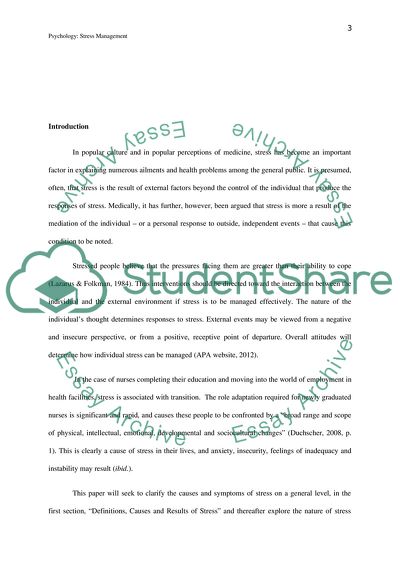Cite this document
(Stress Management and Role Transition for Nursing Students Report Example | Topics and Well Written Essays - 2000 words - 1, n.d.)
Stress Management and Role Transition for Nursing Students Report Example | Topics and Well Written Essays - 2000 words - 1. https://studentshare.org/psychology/1766325-stress-management
Stress Management and Role Transition for Nursing Students Report Example | Topics and Well Written Essays - 2000 words - 1. https://studentshare.org/psychology/1766325-stress-management
(Stress Management and Role Transition for Nursing Students Report Example | Topics and Well Written Essays - 2000 Words - 1)
Stress Management and Role Transition for Nursing Students Report Example | Topics and Well Written Essays - 2000 Words - 1. https://studentshare.org/psychology/1766325-stress-management.
Stress Management and Role Transition for Nursing Students Report Example | Topics and Well Written Essays - 2000 Words - 1. https://studentshare.org/psychology/1766325-stress-management.
“Stress Management and Role Transition for Nursing Students Report Example | Topics and Well Written Essays - 2000 Words - 1”. https://studentshare.org/psychology/1766325-stress-management.


